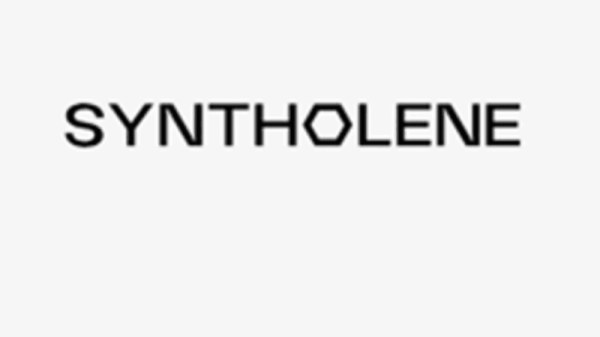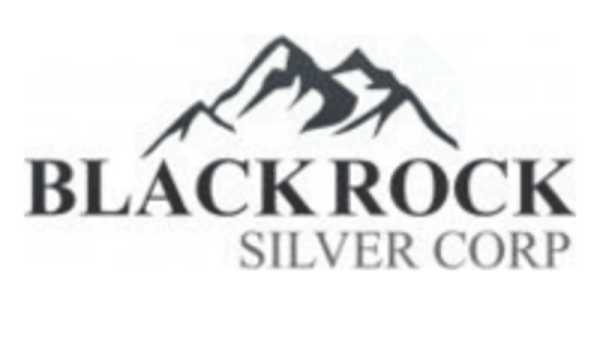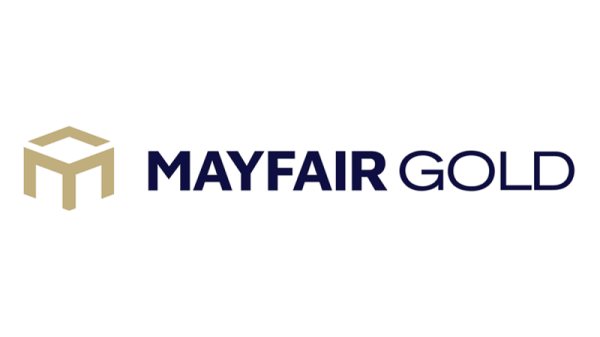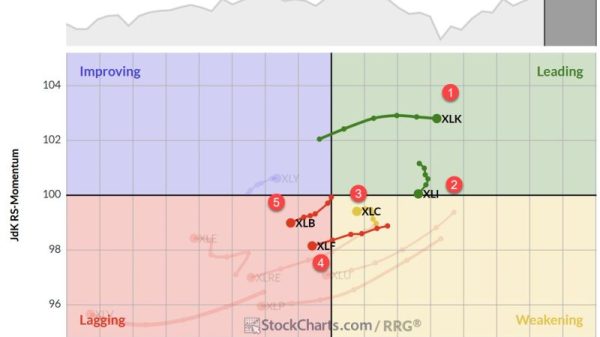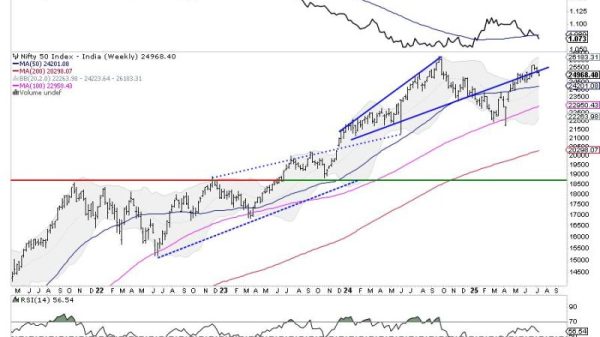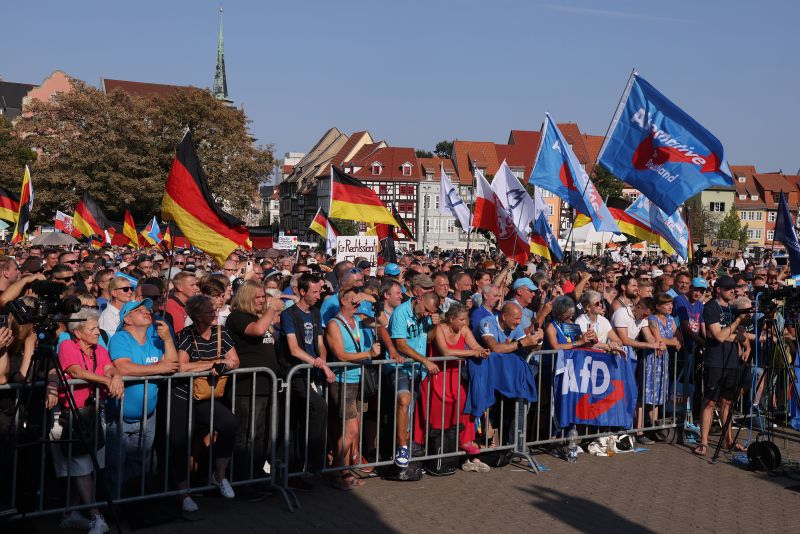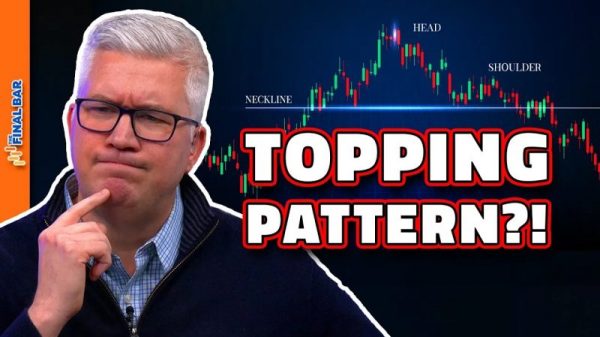The Alternative for Germany (AfD) has become the first far-right party to win a state election in Germany since the Nazi era, dealing a crushing blow to Chancellor Olaf Scholz’s government with only a year to go before the next federal election.
After voting closed on Sunday, the AfD was projected to become the strongest party in the eastern state of Thuringia, with 32.8% of the vote, and to come a close second in Saxony, with 30.6% of the vote.
In another worrying development for Germany’s mainstream, the fledgling Sahra Wagenknecht Alliance (BSW) – a far-left party that has questioned the country’s support for Ukraine and shares some of the AfD’s anti-immigration streak – came third in both states, despite only being founded earlier this year.
Although extremism has long been concentrated in Germany’s east, the results will be a concern for Scholz’s center-left SPD coalition, which slumped to a dismal fifth in both states. If federal elections were held now, recent polls show the AfD could become the second-largest group in the Bundestag, with the SDP trailing in third.
Scholz described the results as “bitter” and, calling on the European principle of the “cordon sanitaire,” urged mainstream parties in Thuringia and Saxony to exclude the AfD from any state governing coalitions.
“All democratic parties are now called upon to form stable governments without right-wing extremists,” Scholz said in a statement. “Our country cannot and must not get used to this. The AfD is damaging Germany. It is weakening the economy, dividing society and ruining our country’s reputation.”
Alice Weidel, co-leader of the AfD, told German public broadcaster ARD that the results were a “requiem” for Scholz’s coalition and questioned “whether it can continue to govern at all.”
The AfD’s solution? “The immediate expulsion of all illegal immigrants from our country. All criminals, all extremists must leave,” she said.
If other parties heed Scholz’s call to shun the AfD, the Christian Democratic Union (CDU) – the mainstream center-right party projected to come first in Saxony and second in Thuringia – would be well-placed to benefit. However, in a sign of the rightward shift of Germany’s politics, the CDU has recently taken a far harsher line on immigration than under its former leader Angela Merkel.
Fertile ground in the east
Founded in 2013, initially in opposition to the euro and the German-backed bailout of southern European countries during the eurozone crisis, the AfD has since coupled its rhetoric of economic grievance with a staunch opposition to immigration.
The issue of immigration became more salient – and the AfD more popular – after then-Chancellor Merkel allowed into the country more than 1 million refugees in 2015, mostly those fleeing civil war in Syria.
While the decision won her praise from Europe’s more liberal mainstream, it has provided a rallying cry for extremist parties in Germany’s formerly communist east, where economic growth is more anemic and opportunities more scarce than in the richer west.
Just days before the state elections, a Syrian man stabbed three people to death and wounded several others at a festival in the western Germany city of Solingen. Weidel pinned the blame solely on Germany’s migration policy: “Instead of racking our brains over the various models of knife bans, we must finally tackle the problem at its roots. Migration change immediately.”
The message is also winning the support of some young Germans. The movement has even acquired its own anthem, after a video filmed on the German vacation island of Sylt showed well-dressed youths chanting “Ausländer Raus” (“foreigners out”) and “Deutschland den Deutschen” (“Germany for Germans”) over a 1999 Eurodance beat. The chant swirled across the country as it hosted the European soccer championships earlier this summer.
Both Lichtenfeld and Flurschutz have joined the Young Alternative (JA), the youth wing of the AfD which has been designated by German authorities as a “confirmed extremist” organization. The main AfD has been designated as “suspected extremist.”
The party’s lead candidate in Thuringia, Björn Höcke, was convicted earlier this year after breaking German laws against uttering Nazi slogans in public.
While the AfD’s growing popularity is for many reminiscent of the country’s darkest political era, Höcke has campaigned on a platform of national pride untainted by historical guilt, under the banner of “Heimat” (“homeland”).
“Yes to freedom, yes to the community, yes to the youth, yes to the future, yes to our Heimat, Thuringia and Germany,” he said at the campaign in Erfurt.


